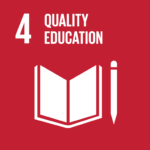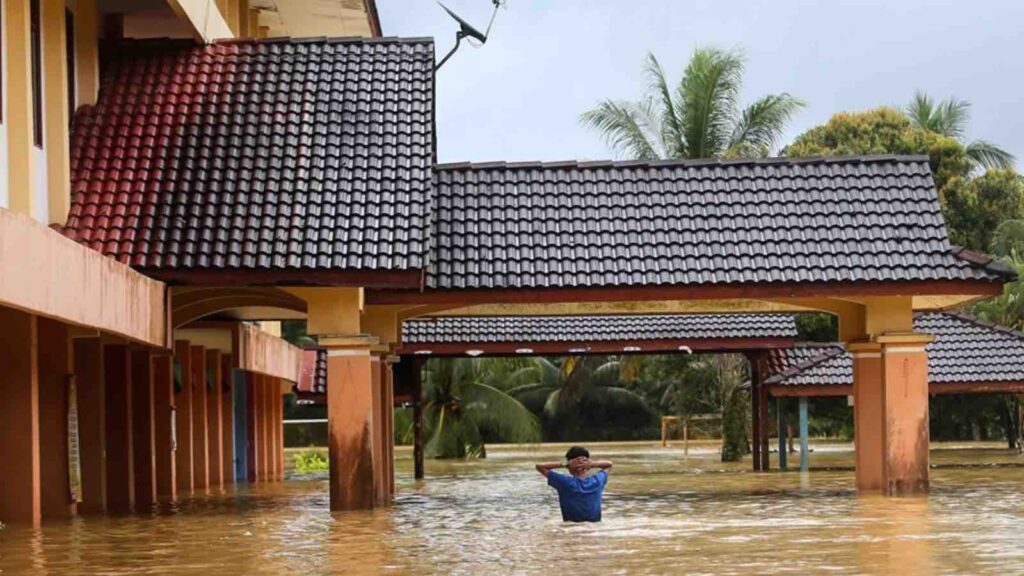More than 140,000 people in Malaysia have been displaced by devastating floods, yet the education minister has insisted on proceeding with a critical exam that determines students’ university eligibility and future job prospects.
As catastrophic floods sweep across Malaysia, displacing over 140,000 people and claiming six lives, a government decision to proceed with key national exams has ignited public outrage. Families struggling to survive in submerged towns are now forced to grapple with a decision many deem callous, leaving students like 17-year-old Nur Ariana Mohd Rozizi braving treacherous waters to reach exam halls.
RELEVANT SUSTAINABLE GOALS



The Costs of Education in a Time of Crisis
In Rantau Panjang, near Malaysia’s border with Thailand, Nur Ariana recounted her grueling 5-kilometer journey to an evacuation center. “This is so hard, even with boats. We almost capsized just trying to get here,” she told reporters. She is one of 300 students evacuated by military personnel to sit for the Malaysian Certificate of Education (SPM) exams, a pivotal test akin to the GCE O-Level, determining university eligibility.
Despite dire circumstances, the Ministry of Education, led by Fadhlina Sidek, has refused to delay the exams, citing coordination with disaster management agencies. “The Ministry is working with agencies such as NADMA, the Malaysian Armed Forces, and the Civil Defence Force to ensure that the SPM examination runs smoothly,” Fadhlina said in a Sunday press conference.
This decision has sparked widespread criticism from parents and the public, who argue that the ministry’s preparations are inadequate and insensitive to the hardships students and their families face.
Floodwaters, Frustration, and Fatalities
The northeast monsoon season, exacerbated by the La Niña weather phenomenon, has brought relentless rain since November, flooding vast areas of Peninsular Malaysia’s east coast. The devastation is severe: six lives have been lost, including two deaths from electrocution and two elderly farmers who drowned.
Neighboring Thailand has also been ravaged, with over 640,000 households affected and at least 12 fatalities reported. In Malaysia, key towns like Rantau Panjang remain submerged, with military trucks and rescue boats the only lifeline for residents.
The decision to press ahead with the exams has added stress to families already dealing with displacement and loss. “People are suffering from the flood disaster. Can’t you postpone the exam?” questioned Facebook user Ryzal Roslan, echoing a wave of social media criticism.
A Nation Divided Over Priorities
The education minister’s stance has drawn fire for a perceived lack of empathy. “You say you don’t want students to be stressed, but now the whole country is stressed with you,” wrote one frustrated parent online. The public outcry highlights a broader dilemma: balancing the continuity of education with the realities of a national disaster.
Nearly 5,400 students have been directly affected by the floods, including 3,111 in Kelantan, 1,734 in Terengganu, and 532 in Kedah, according to official figures. While the Ministry of Education asserts it anticipated such challenges and coordinated logistics accordingly, critics argue that the measures fall short of addressing the psychological and logistical toll on students and their families.
The controversy underscores a recurring issue in disaster management: the tension between maintaining normalcy and addressing humanitarian needs. While the Ministry insists it is prioritizing students’ futures, the backlash reveals a deeper frustration with what many perceive as an inflexible, bureaucratic approach.
Lead image courtesy of EFE/EPA/STR (Kuala Terengganu, Malaysia.- A man walks through a flooded area in Kuala Terengganu, Malaysia, 21 December 2022)
You may also be interested in :
Floods Devastate Malaysia and Thailand : Thousands Displaced, Lives Lost



